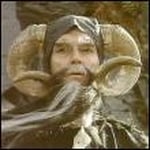I am very lucky to have a chunk of disposable income every month. However, I want to invest and save most of it, because I recognize that disposable income can quickly disappear given the right circumstances.
My problem is a time old one, that I struggle with material desires, and how easy it is to treat it as play money.
Does anyone have any advice how to offset those impulses or otherwise make it easier in the moment to check myself?
Invest a portion of your disposable income automatically, and make “paying yourself” the first bill you pay. But make sure a portion of your disposable income is also fun money. That is what you can impulse spend, no questions asked. But when it’s gone, it’s gone. This whole process is just budgeting. You’re an adult and make reasonable money. You can be an adult with this too. You don’t have to trick yourself.
You’re right. I think my biggest hangup is I spent most of my life, adult or otherwise, scraping by. So up until now my concept of budgeting would only include paying bills by nature. I guess I do need to just advance my approach to budgeting.
I hate to link back to Reddit, but the /r/personalfinance sidebar had great information. Especially the flow chart. Start there. Best of luck!
If you’re impulse buying crap online, I find keeping items in the shopping cart for a day or so gives me time to think before pulling the trigger. If it’s an emergency that’s one thing, but most of the time it can wait.
Also I find budgetting apps to be really helpful in curbing unnecessary spending.
I have 4 different bank accounts that I use primarily (technically 10 total). What I do is split up my direct deposits and/or schedule transfers so that everything is bucketed. One account for fixed monthly bills, one for variable things like groceries, one for savings, and one for whatever I want, etc.
I put a little more than necessary in each account each month, so every so often I may have a surplus for a given bucket, too. This will either go towards the accelerated payoff of something or I’ll split the difference and move half to my fun bucket.
For the most part, this keeps necessary money (bills and savings) out of sight or mind and it’s easier to control my impulse spending when the only account I can/should be spending from has a low limited amount.
Pay yourself first to keep your disposable low. (Define your saving goals and set up automatic saving into another sav account or TFSA/rsp or us alternative) run these transfers the same schedule as your paycheck.
Also, if you tend to spend fast and loose, you may want to Set an amount of time you must waitbefore you can buy the thing depending on cost.
I.e 2 days for a $500 purchase. If you still want it after 5 days, buy it.
It’s not ‘play’ money.
It’s money you’re using to buy investments/savings/a future retirement.
When you start to see it as money that’s already allocated to a regular ‘bill’ you won’t see it as money you can spend.
I opened a high yield savings account and got into the stock market. Your desire to spend drastically decreases when you can see everyday increases that you don’t want to interrupt.
Another one I’ve always liked - Write down what you want to buy and sit on it for a month. If you still want said item in a month, buy it. If you don’t, don’t buy it.
I think a month is too long for smaller purchases, but 2-3 days is plenty. The bigger the purchase, the more time you should give yourself.
Save/invest automatically from your paycheck. Can’t spend it if it isn’t there!
If you have those desires, it’s probably because you’re bored and want to alleviate the boredom. Helps to have hobbies that are cheap or free, and spend time doing them instead of thinking of things to buy. Also, odds are, a lot of your money is going to food and drinks out of the house. If you’re enjoying time with friends, go for it, but try to keep track of what you’re spending out of the house. A few meals and drinks here and there add up faster than making the occasional fun purchase.
This is in addition to the boring personal finance stuff, which you should also be doing.
I have a line in my budget called “disposable” which is a fixed amount per month that I’m perfectly happy to spend on me. It covers entertainments, videogames, books, anything that isn’t strictly necessary, but is enjoyable.
I keep this largely the same every year, not even adjusting it for pay rises etc. It’s a non-negotiable amount (unless things get really dire!) and helps me to understand what I have available to “waste”. Keeping it at a static amount helps to divert any extra into savings and investments, and helps me to avoid lifestyle creep.



